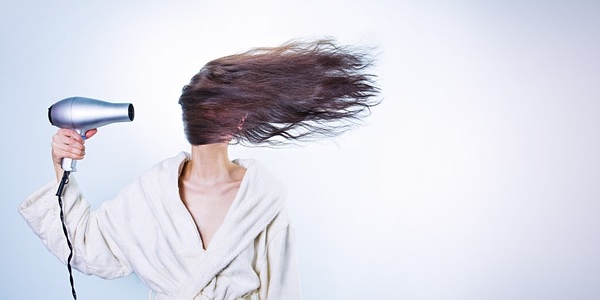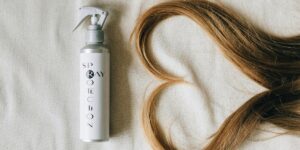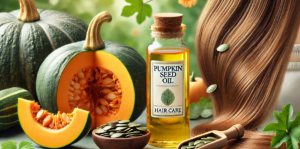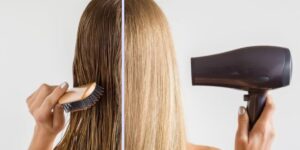Introduction
Achieving long, luxurious hair is a beauty aspiration for many, yet it often seems like a challenging goal to reach. While genetics plays a significant role in the length and health of your hair, lifestyle choices and proper hair care can greatly influence your hair’s growth potential. This comprehensive guide will explore practical strategies on how to grow hair longer, emphasizing natural methods and preventive care to help you achieve and maintain longer, healthier hair. Discover the best hair growth tips to enhance your hair care routine effectively and learn how to grow hair longer.
Table of Contents
Understanding Hair Growth
The Hair Growth Cycle
Hair growth occurs in a cyclical pattern that includes three key phases: the anagen (growth), catagen (transition), and telogen (resting) phases. Each hair strand exists in one of these phases independently, ensuring continuous hair growth and shedding. Understanding how to grow hair longer starts with recognizing these phases.

- Anagen Phase: This phase lasts between 2 and 7 years and is characterized by the active production of new hair cells at the root. The duration of this phase largely determines the maximum length of your hair.
- Catagen Phase: Lasting about 2-3 weeks, this brief period marks a transition where hair stops growing and the hair follicle shrinks.
- Telogen Phase: During this phase, lasting approximately 3 months, hair is released and falls out. The follicle then remains inactive for a while before the cycle restarts.
Understanding these phases provides insight into various hair concerns, including hair loss and slow growth rates, paving the way for more targeted hair growth strategies.
Factors Affecting Hair Growth
Several external and internal factors influence hair health and growth rate, which are important to consider when learning how to grow hair longer:
- Genetic Predisposition: Genetics determine hair texture, growth rate, and the length of the anagen phase.
- Hormonal Imbalances: Hormones play a critical role, with imbalances potentially leading to hair thinning or loss.
- Nutritional Deficiencies: Lack of essential nutrients can stunt hair growth and lead to hair fall.
- Age: Hair growth tends to slow with age as the anagen phase shortens.
- Health Conditions: Scalp health is integral to hair growth. Conditions like alopecia areata or scalp psoriasis can severely impact hair health.
Diet and Nutrition for Hair Growth
Essential Nutrients
The foundation for healthy hair is a well-rounded diet. Here are key nutrients that are critical for hair growth and can help on how to grow hair longer:
- Protein: Keratin, a type of protein, is a primary component of hair. Insufficient protein can lead to weak, brittle hair.
- Vitamins and Minerals: Vitamins A, C, D, E, zinc, iron, and selenium support the hair growth process and scalp health. For instance, Vitamin C aids in collagen production and iron absorption, crucial for hair strength.
- Omega-3 Fatty Acids: These fats are essential for nourishing hair follicles and keeping your scalp hydrated.
Best Foods for Hair Growth
Incorporating a variety of nutrient-rich foods can enhance hair growth. Some of the most beneficial foods include:
- Salmon and Flaxseeds: Rich in omega-3 fatty acids, they help maintain a healthy scalp.
- Berries and Citrus Fruits: Excellent sources of Vitamin C, which has antioxidant properties that protect hair follicles from damage.
- Spinach and other Leafy Greens: High in iron, beta carotene, folate, and Vitamin C, which promote hair health.
- Nuts and Seeds: These are good sources of zinc and Vitamin E.
Effective Hair Care Routine
Gentle Hair Handling

Reducing mechanical stress on hair is crucial for preventing breakage and encouraging growth, an important part of how to grow hair longer:
- Avoid Overwashing: Limit washing to two or three times a week to preserve natural oils that condition the hair.
- Use Sulfate-Free Shampoos: These shampoos clean without stripping essential moisture.
- Always Condition: Conditioning after every wash helps maintain the integrity of the hair shaft.
Scalp Care
A healthy scalp environment promotes optimal hair growth, essential when considering how to grow hair longer:
- Regular Massages: Stimulating the scalp with gentle massages increases blood circulation, nourishing hair roots.
- Keep the Scalp Clean: Build-up of products can clog follicles and impede hair growth.
Scalp Care
Natural Remedies for Hair Growth
Effective Home Treatments
Several natural treatments can enhance hair growth:
- Coconut Oil: Its lauric acid content helps bind protein in hair, protecting it from breakage.
- Aloe Vera: It soothes the scalp and conditions hair, reducing dandruff and unblocking hair follicles.
- Rosemary Oil: This oil is believed to enhance hair growth and thickness as effectively as minoxidil, a common hair growth treatment.
DIY Hair Masks
Try these homemade hair masks for nourishment:
- Avocado and Honey Mask: Avocado is rich in biotin, and together with honey, it provides moisture and strength to hair.
- Egg Yolk and Olive Oil Mask: This combination is rich in vitamins that promote hair health.
Effective Products for Hair Growth
Recommended Hair Growth Products
The market is saturated with numerous products that claim to enhance hair growth. Here are some that have shown consistent results based on user reviews and ingredient effectiveness:
- Minoxidil: This topical solution has been scientifically proven to help regrow hair and prevent further hair loss.
- Biotin Supplements: Biotin, or Vitamin B7, is known for its role in hair health. Supplements can help improve hair strength, texture, and growth for those with deficiencies.
- Hair Growth Serums: Look for serums containing natural ingredients like peppermint oil, caffeine, and biotin that stimulate the scalp and promote blood flow.
- Scalp Scrubs: Exfoliating scrubs can remove dead skin cells and product buildup, creating a healthier environment for hair growth.
How to Choose the Right Products
When selecting hair growth products, consider the following:
- Ingredient Quality: Opt for products with well-researched, natural ingredients.
- User Reviews: Look at reviews to gauge the effectiveness of the product from multiple perspectives.
- Scalp Type: Choose products that match your scalp type—oily, dry, or balanced.
- Specific Needs: Tailor your product choice to address specific issues like hair thinning, scalp health, or overall hair vitality.
Avoiding Common Hair Growth Mistakes
What to Avoid
Certain practices can inhibit hair growth:
- Heat Styling: Frequent use of high heat can damage the hair structure.
- Harsh Chemical Treatments: Perms and relaxers can weaken hair.
- Tight Hairstyles: Overly tight hairstyles can lead to traction alopecia.
Conclusion
Long, healthy hair requires a multifaceted approach involving a nutritious diet, proper hair and scalp care, avoiding damaging practices, and selecting effective products. By understanding the complexities of hair growth and implementing these strategies, you can maximize your hair’s length and health.





